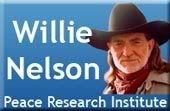Redemption of the World Begins with You and Me
From the JTS Distance Learning Project:
Yom Kippur 5765
Chancellor Ismar Schorsch
September 25, 2004 10 Tishrei 5765
| This week's commentary was written by Dr. Ismar Schorsch, chancellor of The Jewish Theological Seminary. |
The redemption of the world is easier than you think. It starts with you and me. At least that is the empowering conviction of Rabbi Hanina bar Hama, a Palestinian sage in the first half of the third century. A defender of intellectual property, he declaimed that "Anyone who transmits something (davar) in the name of the person who said it first brings redemption to the world" (BT Megillah 15a). The proposition is not quite as grandiloquent as it sounds. Rabbi Hanina cites a striking scriptural prooftext from the scroll of Esther.
After Ahasuerus selected Esther to be his queen, Mordecai, her foster father and cousin, discovered a plot to kill the king by two of his eunuchs. He reported the threat to Esther, who in turn, informed the king "in Mordecai's name" (Esther 2:22)' Ahasuerus, of course, had the two conspirators dispatched. More importantly, the king's debt to Mordecai was recorded in the annals of his reign, to come to his attention at a later and crucial juncture in the effort to rescue Persian Jewry from the clutches of Haman. Had Esther claimed all the credit for herself for revealing the plot, Persian Jewry might have perished. The unintended consequence of a tad of truthfulness, saved an entire nation.
The spirit of Rabbi Hanina informs the long confession that we recite five times during the fast of Yom Kippur, beginning with the afternoon service (Minhah), the day before. Formulated in the plural and arranged alphabetically, the al het consists of a catalogue of forty-four sins, two for each Hebrew letter. The sins listed tend to be generic rather than specific. This latitude gives each of us the space we need to find our place. Fully one quarter, if not more, of the sins for which we atone, deal with the abuse of speech. For example, "idle talk, offensive language, insincere confession, unclean lips, foolish talk, slander, fraud and falsehood, gossip and swearing falsely." The disproportionate number is a mirror of the human condition. Our greatest gift — the ability to communicate — can both harm and heal, bind together and break apart. If truth, and not ego or malice, governed our speech, the concentric circles of our world would bear witness to far less strife. The author of Proverbs did not exaggerate when he observed that "death and life are in the power of the tongue" (18:21).
Nor did Rabbi Hanina. Who of us is not daily tempted to obscure our indebtedness to others in order to enhance our public persona? Plagiarism takes many forms and is hardly restricted to students who are indolent or stressed out. Each act of self-restraint enriches the world with a fraction of redemption. Rabbi Hanina, who lived but a century-and-a-half after the destruction of the Temple, was a messainist of sorts. He believed that what delayed the coming of the messiah was a surfeit of presumptuous individuals (BT Sanhedrin 98a). The key to national restoration was not the conquest of others, but self-conquest. Rabbi Hanina strove to redirect militant messianism into personal piety. The victories to be won were inner ones.
God's very own seal, he contended, bore the word emet (truth) on it (BT Shabbat 55a). By implication, the claim imposed on humans the obligation to emulate the divine attribute of truthfulness no less than the divine attribute of compassion. Every facet of our lives ought to manifest that highest of values. And each morning, as we ready ourselves for prayer, we verbalize the goal: "We should always revere God in private as in public. We should acknowledge the truth in our hearts and practice it in thought as in deed" (Siddur Sim Shalom for Shabbat and Festivals 66). That is, to revere God is to be truthful, first to ourselves and then to others. As long as we deceive ourselves, we will end up deceiving others.
The prayer that follows that daily admonition is a précis of the High Holy Day liturgy — an attempt to shrink the ego that so readily ferments into bluster and arrogance. Truthfulness is a function of modesty. Silently, we acknowledge to God that we are neither powerful nor wise nor righteous, that our lives lack significance and our actions, meaning. "Human preeminence over beasts is an illusion when all is seen as futility." To make room for God in our lives we need to contract ourselves. A soul crowded out by ego has lost its capacity to live by truth.
Long before Rabbi Hanina, Rabban Shimon ben Gamliel, a contemporary of the Temple's destruction, averred that "The world rests on three things: on justice, on truth and on peace" (Pirkei Avot1:18). Given his disordered time, his sentiment is entirely understandable. But from the perspective of distance, I would argue that justice and peace are a consequence of truth and that, indeed, the world rests on truth alone. Not only is truth God's seal; it is also the fundament of human society. We discard it at our peril, for truth is a prerequisite of trust, without which neither justice nor peace is attainable. Hence, thrice daily we conclude the Amidah (the silent devotion), by seeking God's help in keeping our tongues from evil and our lips from guile. Redemption, like life itself, begins in miniature.
I wish you a favorable verdict and an easy fast.
Gemar tov v'Shabbat shalom
| The publication and distribution of Dr. Schorsch's commentary on Yom Kippur 5765 are made possible by a generous grant from Rita Dee and Harold (z"l) Hassenfeld. |
Copyright © 2004 Jewish Theological Seminary
Comments to learn@jts web team.














0 comments:
Post a Comment